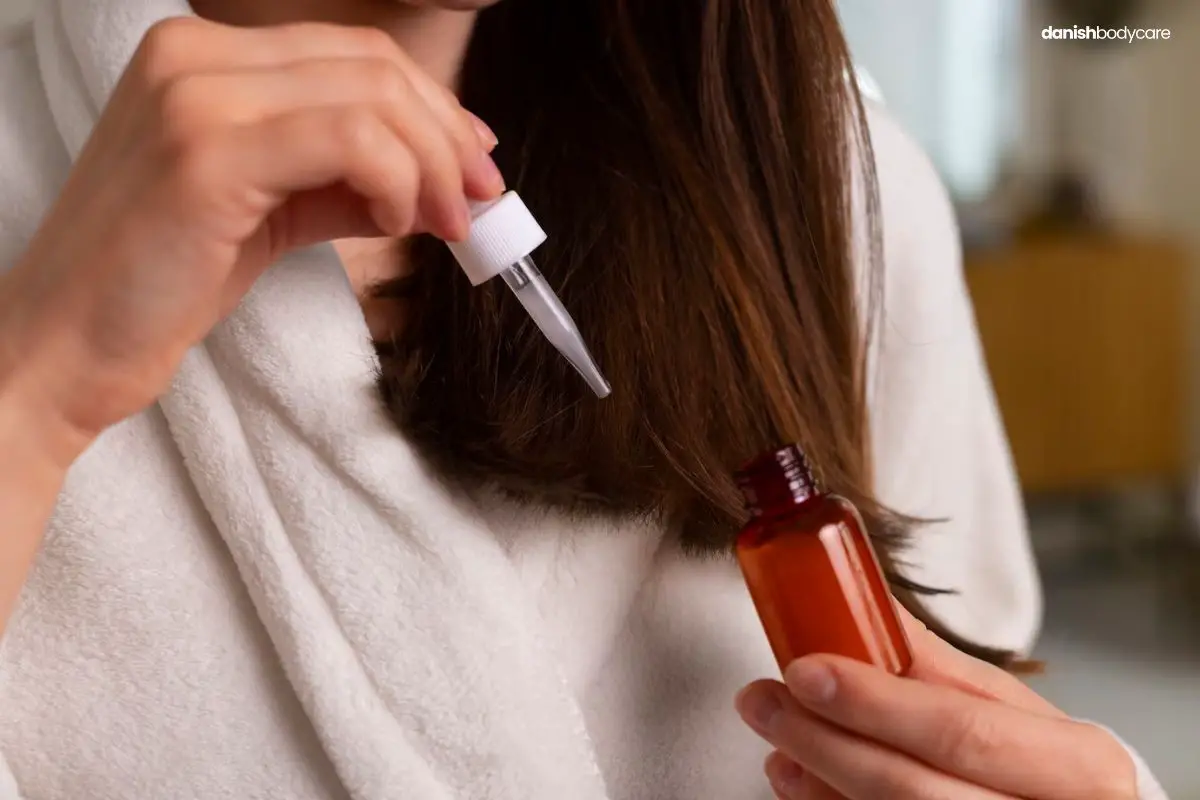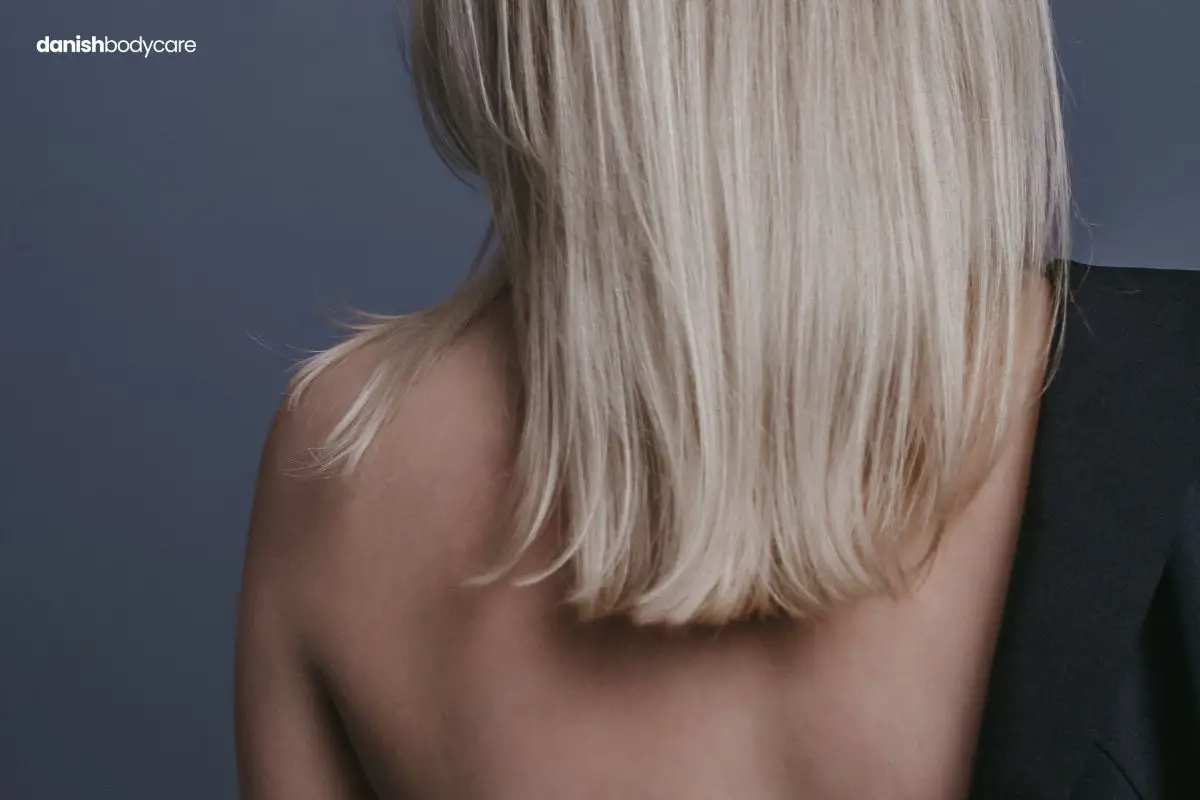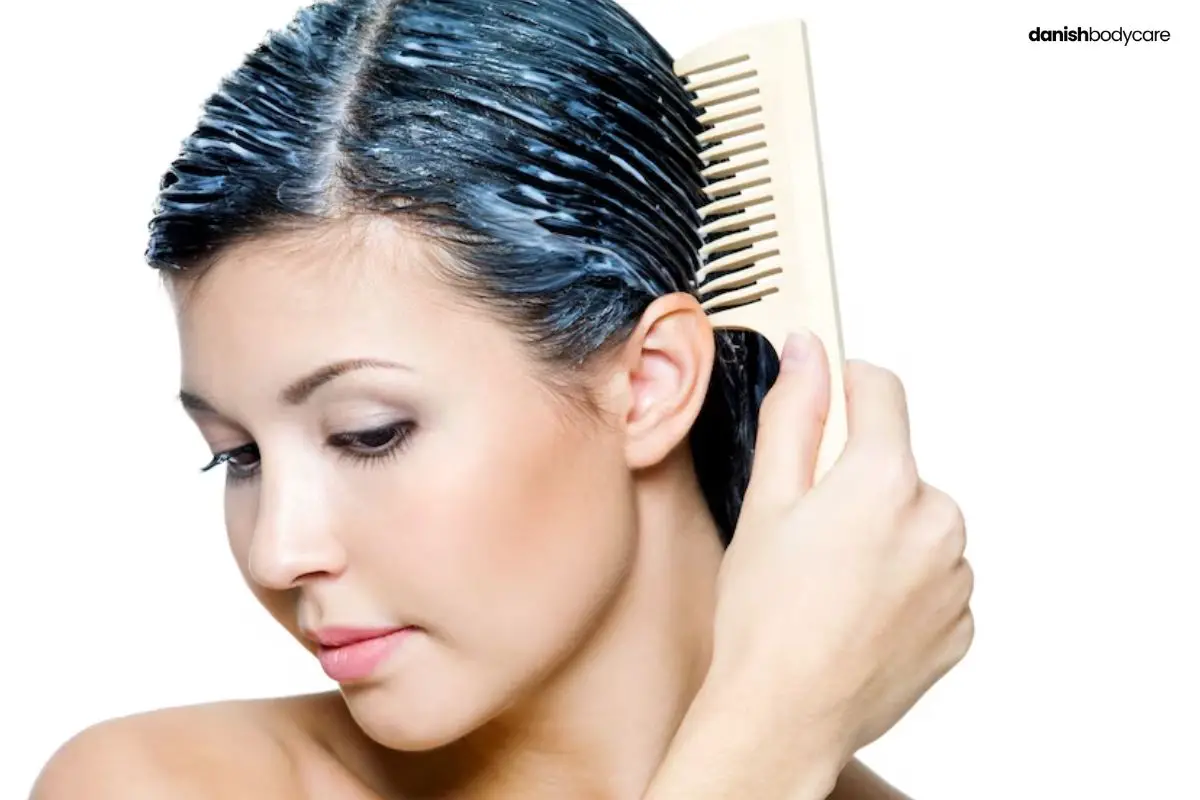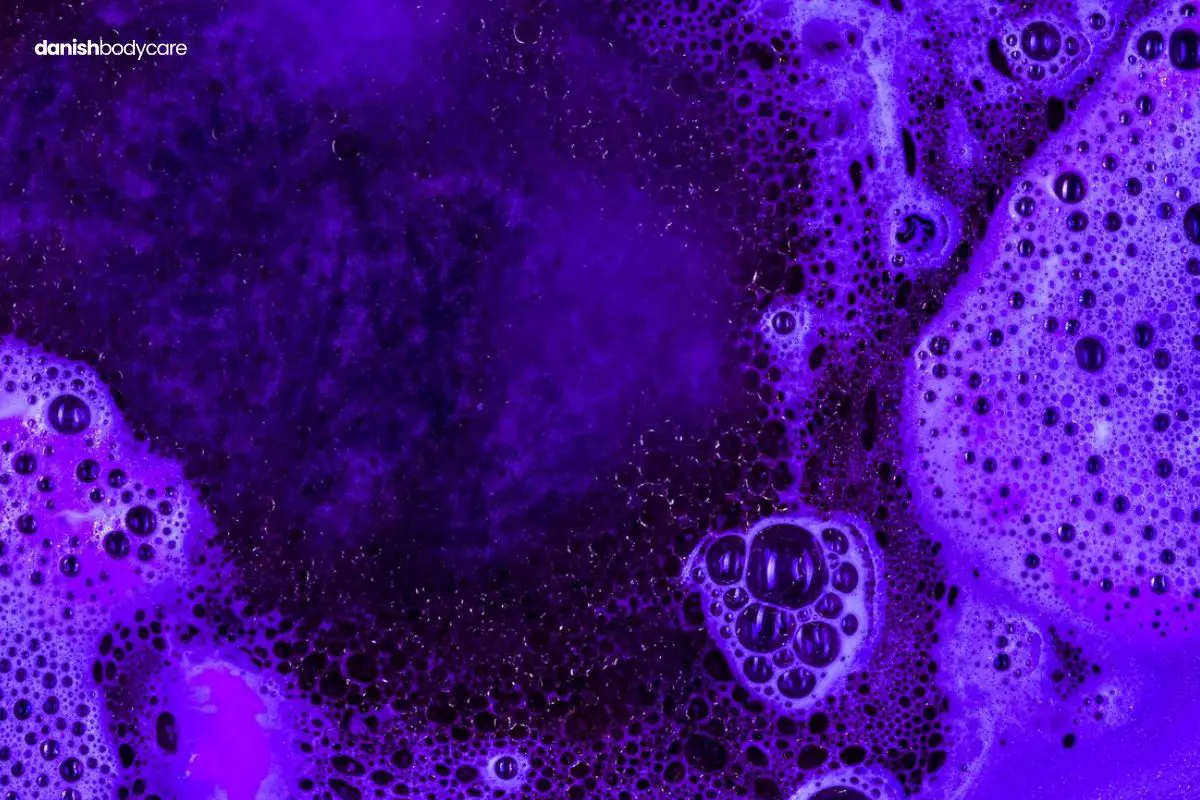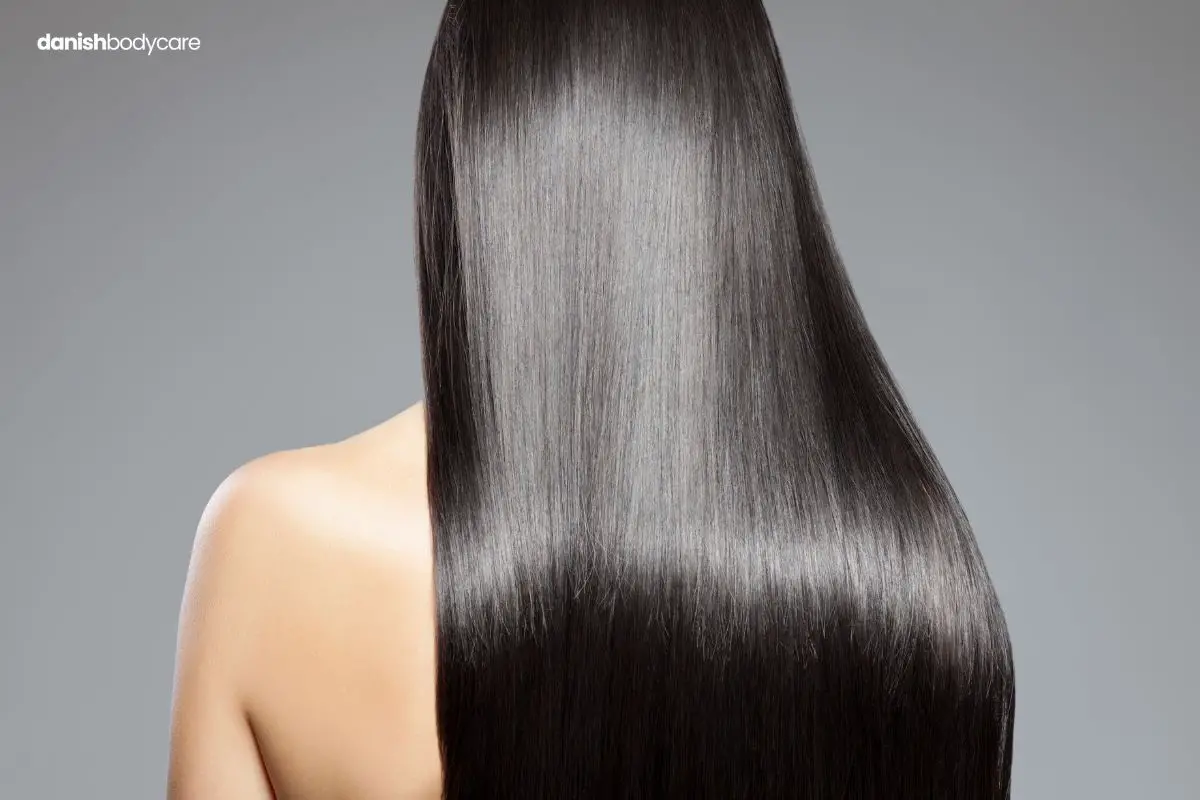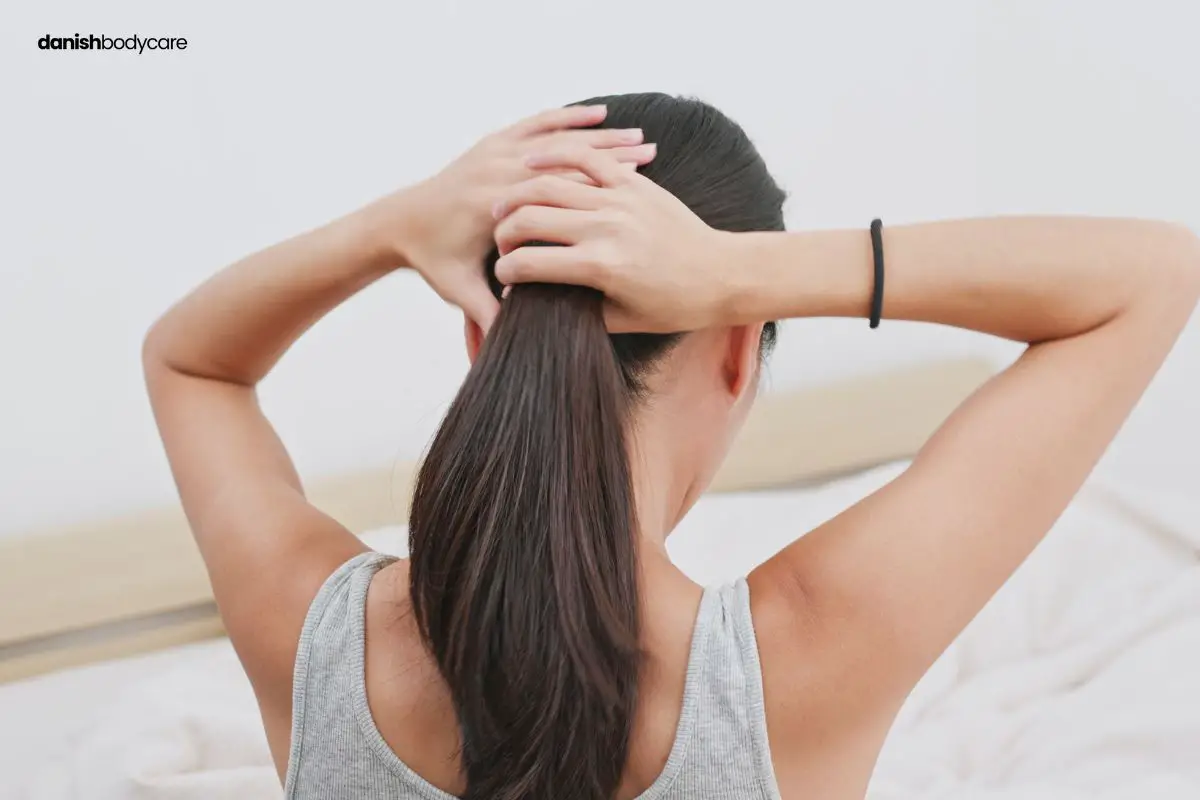If you’re tired of dealing with static hair, you’re not alone.
Static electricity makes your hair look frizzy and unkempt, and it can be difficult to manage. But there’s good news:
Hair oil can help reduce static and make your hair more manageable.
In fact, studies prove that hair oil adds moisture to your hair. This is key when dealing with static hair.
Here’s all about hair oils and static hair.
What Is Static Hair?
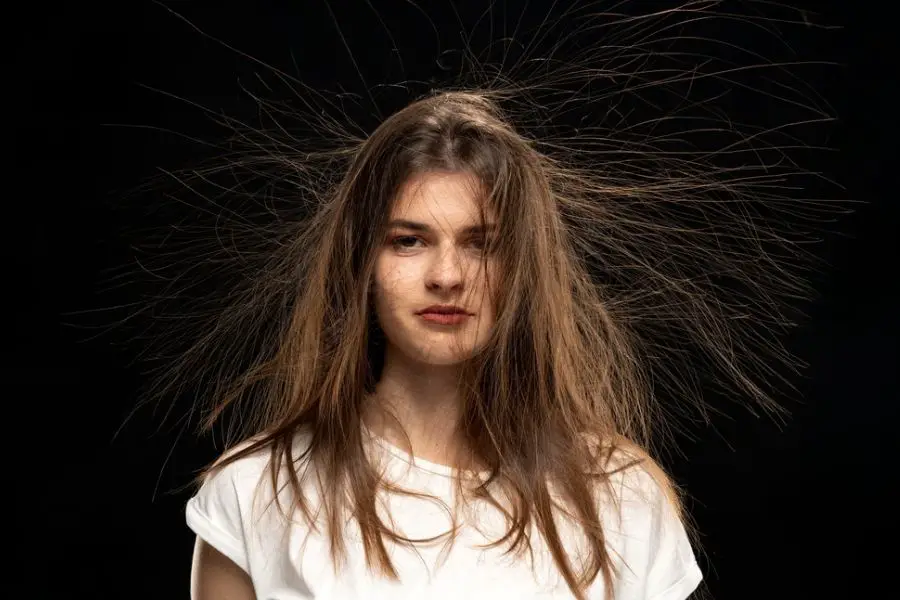
Static hair occurs when your hair develops an electric charge. It does so when it gains extra electrons due to friction or changes in humidity. This creates positive and negative charges that cause your hair strands to push away from each other.
When your hair repels itself, you have what we call static hair and flyaways.
When you brush or touch your hair, you transfer electrons from one surface to another, increasing the imbalance of charges. As a result, your hair can become unruly and difficult to manage.
Causes of Static Hair
There are many causes of static hair:
- Friction: When you brush, comb, or even touch your hair, the rubbing action can create static electricity.
- Humidity: Dry climates and cold winter months often have lower humidity, leading to static hair.
- Heated indoor environments: Heaters used during winter months dry out the air, making your hair more prone to static.
- Dry hair: When your hair lacks moisture, it’s more prone to attract and hold electric charges.
Does Hair Oil Help With Static Hair?
Yes, hair oil can help get rid of static hair. When you apply a small amount of hair oil to your hair, it moisturizes and smooths the strands. This reduces friction, preventing static from building up.
Studies prove that hair oils enhance your hair’s ability to retain moisture. But not all hair oils work. Make sure you use those that add moisture. More on this later.
Types of Hair and Their Susceptibility to Static
Hair oil won’t work for all hair types. Depending on your type, moisture might not be the problem.
But, if you have fine or curly hair, there’s a high likelihood that it can work.
Fine Hair

Fine hair is more prone to static electricity due to its thinner texture.
The lighter strands can easily create friction, leading to a build-up of electrons in your hair. When dealing with fine hair, keep it well-moisturized and nourished to prevent static.
Hair oils and natural remedies can help you maintain a silky, manageable appearance. That is, without resorting to harsh chemicals or expensive treatments.
Make sure to stay hydrated and use products suitable for fine hair to minimize static-inducing friction.
Curly Hair

Curly hair has its unique challenges, as it tends to be drier and more prone to frizz than other hair types.
While frizz and static are different issues, they often go hand in hand.
To reduce static in your curly hair, focus on using hydrating and nourishing hair products. Keep your hair moisturized with a leave-in conditioner formulated for your hair type.
Anti-static hair oil also helps prevent flyaways and keep your curls looking smooth and defined.
Best Hair Oils for Static Control
When it comes to controlling static hair, using the right hair oil makes a huge difference.
That’s why you should use one of the following:
- Argan oil
- Coconut oil
- Jojoba oil
- Olive oil
Argan Oil
Argan oil, extracted from the kernels of the Argan tree, is a popular choice for managing static. It has a unique ability to moisturize and condition the hair.
Rich in antioxidants and essential fatty acids, it helps protect your hair from environmental damage.
Apply a few drops of Argan oil to your hair after washing to make it more manageable and less prone to static.
Coconut Oil
Coconut oil is another excellent option for static control. It penetrates the hair shaft, locking in moisture and reducing frizz. It also possesses antimicrobial properties that can benefit scalp health.
To make the most of coconut oil’s benefits, warm up a small amount and apply it to your damp hair. Focus on your ends, not the roots.
Jojoba Oil
Jojoba oil’s molecular structure resembles your scalp’s natural oil, sebum. It helps balance oil production and is a great choice for those who struggle with oily or greasy hair.
This oil effectively controls static by moisturizing hair and forming a protective barrier.
To use jojoba oil, apply a few drops to your palms, rub them together, and comb your fingers through your hair. Pay attention to the ends.
Olive Oil
Olive oil is a well-known and versatile oil for hair care. With its high content of antioxidants and fatty acids, it nourishes and conditions hair. As a result, it helps prevent static hair and enhance its overall health.
To utilize olive oil, warm up a small amount and apply it to damp hair. You can also combine it with other oils, such as Argan and Jojoba, for an effective hair oil treatment.
How to Use Hair Oil for Static Hair
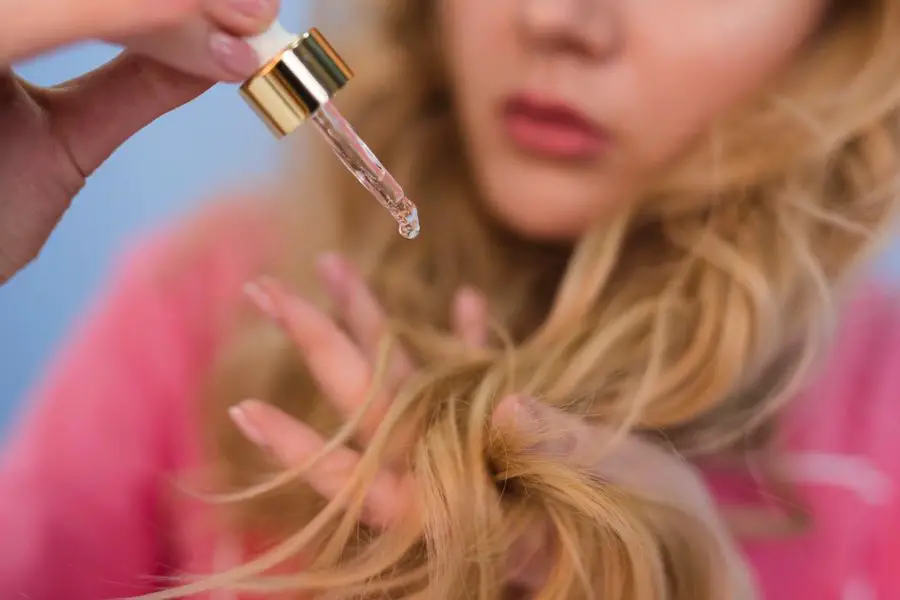
Here’s how to use hair oil for static hair:
- Choose a hair oil with multiple moisturizing oils.
- Apply a small amount to your fingertips and run them through your hair. Focus on the ends.
- A little oil goes a long way, so start with just a few drops and add more if needed.
- Use hair oil regularly to ensure your hair stays hydrated.
How to Make Your Own Hair Oil for Static Hair
To make your own hair oil for static hair, you’ll need just a few ingredients and some simple steps. The goal is to create an oil that won’t clog pores, adds moisture, and promotes a healthy scalp.
Gather the Materials
Start by gathering the following ingredients:
- A carrier oil (like coconut or jojoba)
- Essential oils (such as lavender, rosemary, or tea tree oil)
First, select a carrier oil that suits your hair type. Coconut oil works well for most hair types, while almond and jojoba oils are lightweight and suitable for finer hair.
Next, choose one or two essential oils for additional benefits for your hair. Lavender oil is known for promoting hair growth. Tea tree oil has antimicrobial properties to help keep your scalp healthy. If your hair is prone to dryness or flaking, add rosemary oil to help soothe your scalp.
Create Your Oil
Next, create your own hair oil:
- Measure out about 2 tablespoons of your chosen carrier oil and pour it into a small bottle or container.
- Add 3-5 drops of your essential oil(s) to the carrier oil and mix well.
Apply Your Hair Oil
Now it’s time to apply your homemade hair oil:
- Pour a small amount of the oil into the palm of your hand and rub your hands together to warm it up.
- Massage the oil into your scalp, moving in circular motions to stimulate blood flow.
- Work your way across the entire scalp for 10-15 minutes.
- Apply the oil to the rest of your hair. Pay special attention to the ends.
- Wrap your hair in a warm towel or shower cap and leave the oil on for an additional 20-30 minutes. This allows it to penetrate further.
The last step is not mandatory but can enhance the benefits of your homemade hair oil.
Once you’ve completed these steps, rinse your hair thoroughly with a gentle shampoo. You’ll notice an improvement in the texture and manageability of your hair, as well as a reduction in static.
Frequently Asked Questions
Does argan oil stop static hair?
Yes, argan oil can help reduce static in your hair. Argan oil is rich in essential fatty acids and vitamin E, which helps moisturize and smooth your hair. When your hair is well moisturized, it becomes less prone to static buildup. You can apply a few drops of argan oil to your hair, focusing on the ends and avoiding the roots, to prevent static.
Does coconut oil stop static hair?
Coconut oil can help diminish static hair as well. It is an excellent natural moisturizer and works to nourish and smooth your hair strands. Using a small amount of coconut oil on your hair, especially on the tips, can minimize static electricity. Be sure to use only a small amount, as too much oil can weigh your hair down or make it greasy.
Does olive oil help with static hair?
Olive oil is another natural option to help combat static hair. It works as a great moisturizer, providing nutrients and hydration to your hair strands. To use olive oil for reducing static, warm a small amount between your hands and apply it to your hair, concentrating on the ends. Like with the other oils, make sure not to use too much to avoid greasiness or weighing your hair down.

